By David Robie, editor of Asia Pacific Report
A Palestinian advocate has appealed to the New Zealand government to call for a permanent ceasefire in Gaza and to back the South African genocide case against Israel at the International Court of Justice (ICJ).
“A sovereign state like New Zealand that has historically stood for what is morally correct must not bend to foreign pressure, and must reject policies aligned with the United Kingdom of Israel and the United States of Israel which blindly endorse and support the apartheid regime,” said Billy Hania of the Palestine Solidarity Network Aotearoa (PSNA).
He was speaking at the pro-Palestinian rally and march in Auckland Tāmaki Makaurau yesterday as the Gaza death toll rose above 25,000 dead, mostly women and children.
- READ MORE: ‘Criminal complaints’ filed against Israeli President Herzog in Switzerland
- War on Gaza: The US plan to revamp Palestinian Authority is doomed
- ‘Bombing all around us’ — Israeli assault hospital in Khan Younis
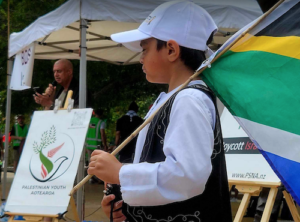
Belgium is among the latest of 61 countries — and the first European nation — to support the genocide case and a growing number of other lawsuits are also being brought against Israel.
Chile and Mexico have asked the International Criminal Court (ICC) to investigate crimes against civilians in the war and Indonesia has filed a new lawsuit in the ICJ against Israel for its illegal occupation of Palestinian territories.
Swiss prosecutors have also confirmed that a “crimes against humanity” case has been filed against Israeli President Isaac Herzog during his visit to the World Economic Forum in Davos last week. No further details were given.
“The Zionist project is failing in Palestine — the apartheid entity with 75 years of colonial terror has achieved nothing for the Jewish people, oppressing and killing Palestinians through a violent settler colonial approach,” Hania said.
“Mass killing of Palestinians will achieve nothing for the Jewish people. Without respect for Palestinian rights and respect for life in Palestine, there will be no peace period.”
‘One holocaust not enough?’
Constrasting the shrinking support for Israel with massive citizen protests “in their millions” taking place around the world, Hania criticised Germany’s intervention in the genocide case supporting Tel Aviv while also planning to provide 10,000 tank munitions to “the apartheid regime with which to massacre Palestinians — as if one holocaust was not enough”.
“We are calling on the New Zealand government to support the South African ICJ case in addition to supporting the recent Chile-Mexico ICC war crimes initiative. This initiative is technically important with Israel being a signatory to the ICC,” Hania said.
He also thanked Indonesia for its legal initiative.
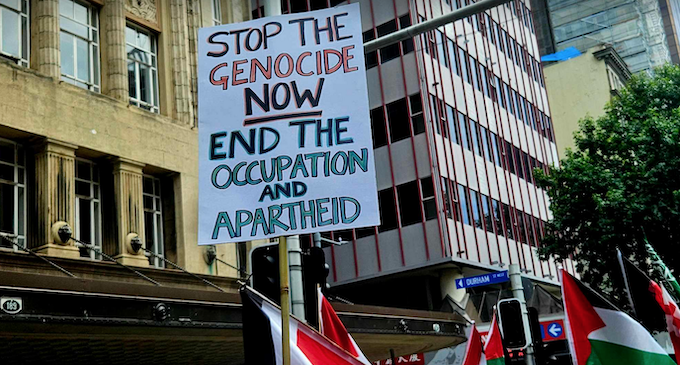
“More than 100 days of targeting Palestinian civilians and civilian infrastructure to exterminate Palestinian life is committing genocide, the crime of all crimes and with total impunity,” Hania said.
“More than 60,000 tons of explosives dropped over Gaza in 100 days equals three nuclear bombs, more than the infamous nuclear tragedy on Japan that led to its immediate surrender. It’s fundamentally different for Gaza as surrendering does not exist in Palestine vocabulary.”
He said the more than 100 Israel hostages would remain in Gaza until the “thousands of Palestinian hostages are freed”.
“The Gaza siege must end, West Bank Israeli settler extremist violence must end, there must be respect for worshippers and Muslim religious sites attacks by Israeli extremists is well documented and must end.”
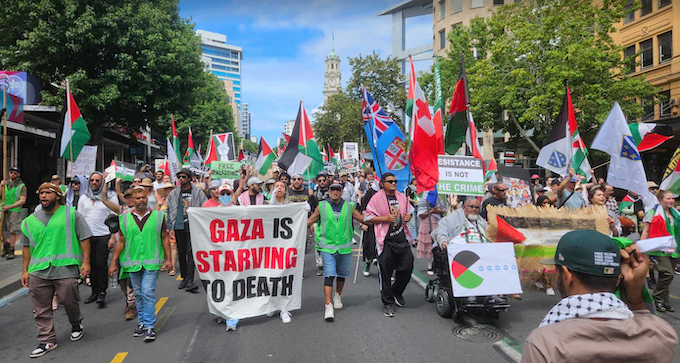
24 massacres cited
Hania stressed that the current war did not start on October 7 with the deadly Hamas resistance movement attack on southern Israel as claimed by the Israeli government.
He cited a list of 24 massacres of Palestinians by Zionist militia that began at Haifa in 1937 and Jerusalem the same year, including the Nakba – “the Catastrophe” — in 1948 when 750,000 Palestinians were forced out of their homes and lands with the destruction of towns and villages.
Hania also referred to a recent New York Times article that warned Israel was in a strategic bind over its failed military policies, saying Israel’s objectives were “mutually incompatible”.
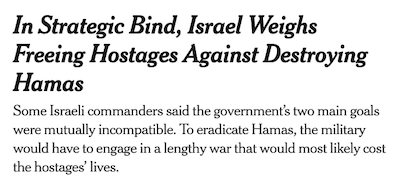
“Israel’s limited progress in dismantling Hamas has raised doubts within the military’s high command about the near-term feasibility of achieving the country’s principal wartime objectives: eradicating Hamas and also liberating the Israeli hostages still in Gaza,” wrote the authors Ronen Bergman and Patrick Kingsley.
Israel had established control over a smaller part of Gaza at this stage of the war than originally envisaged in battle plans from the start of the invasion, which were reviewed by The Times.
Citing Dr Andreas Krieg, a war analyst at King’s College London, from the article, Hania quoted:
“It’s not an environment where you can free hostages.
“It is an unwinnable war.
“Most of the time when you are in an unwinnable war, you realise that at some point — and you withdraw.
“And they didn’t.”
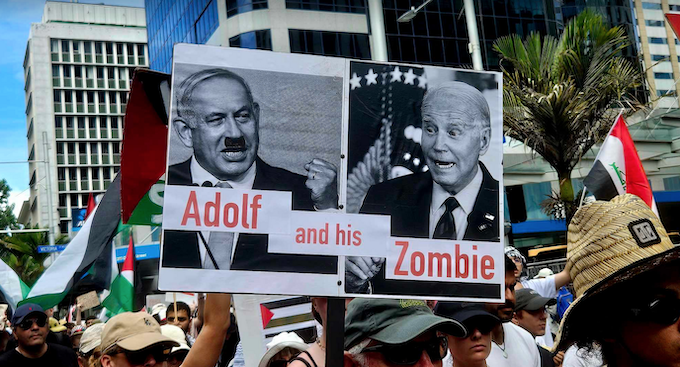
This post was originally published on Asia Pacific Report.